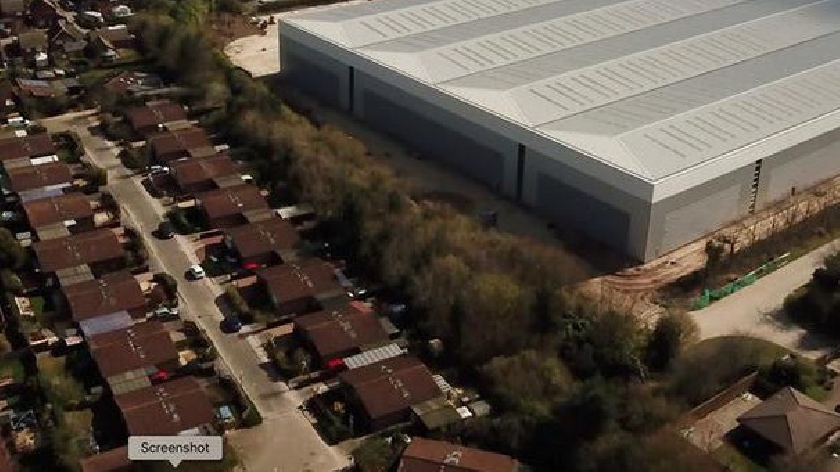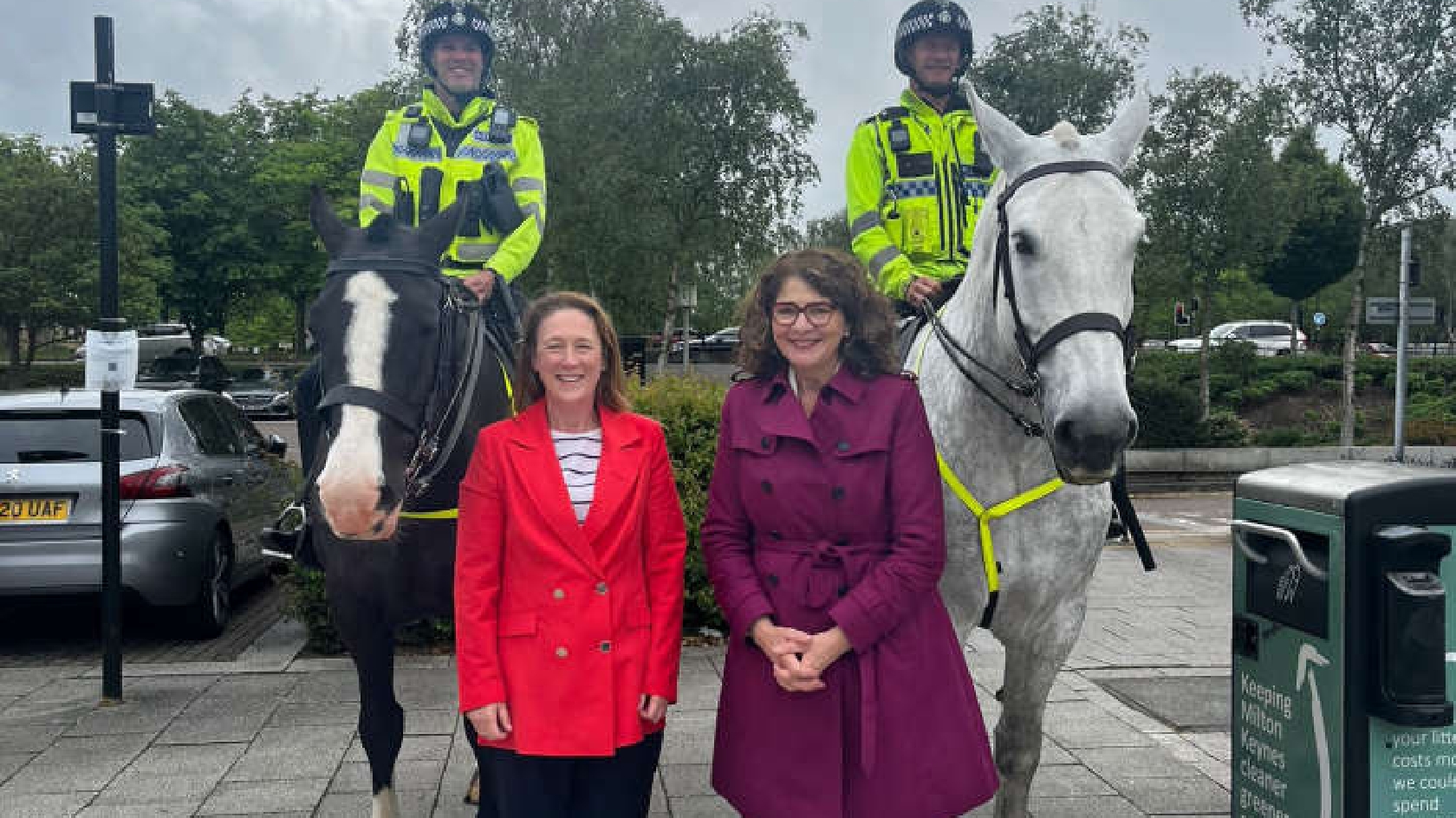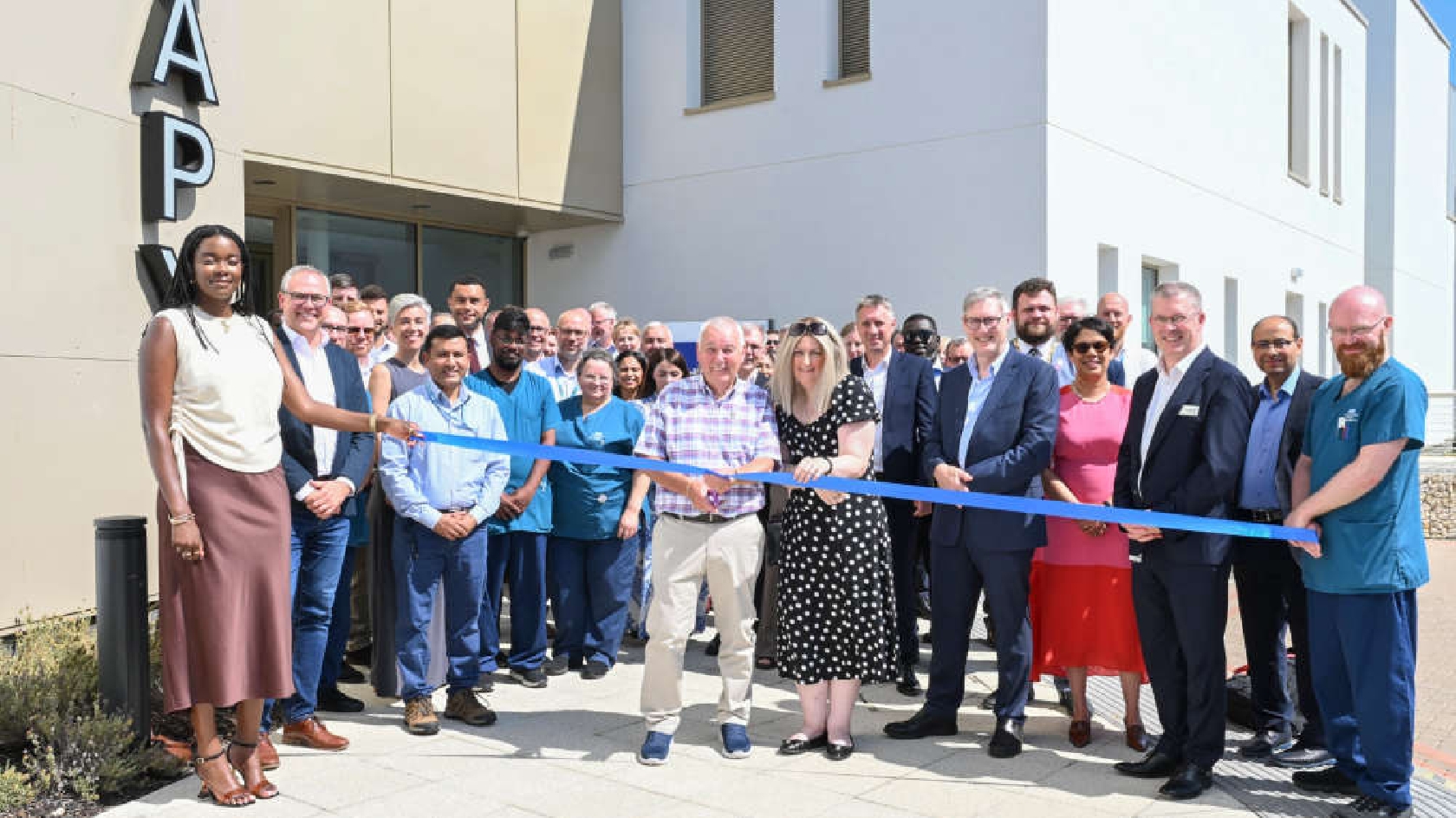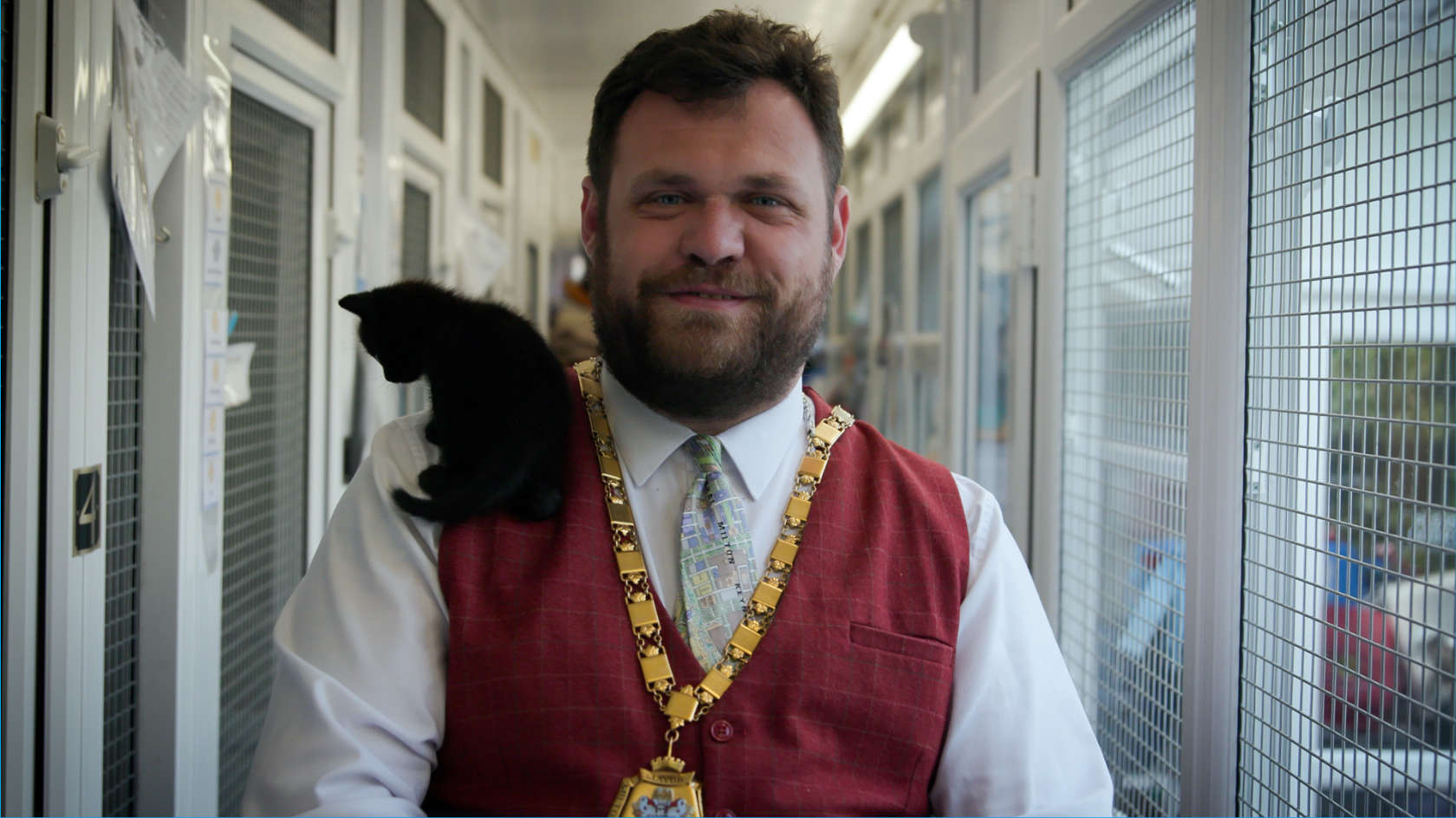
Cllr Pete Marland, Leader of Milton Keynes Council, has issued an apologetic statement regarding the controversial Blakelands warehouse.
This comes just days after Ben Everitt, MP for Milton Keynes North, told MKFM that Thames Valley Police is said to have launched an enquiry into 'matters relating' to the warehouse.
Police have said that "an assessment of a number of allegations is being carried out to establish if a criminal investigation into these is warranted".
The statement Cllr Pete Marland is as follows...
In May 2017 Milton Keynes Council granted planning permission for the redevelopment of an existing warehouse at 1 Yeoman’s Drive, Blakelands.
The events leading up to, including and after the Development Control Committee (DCC) decision have been the subject of a great deal of interest, dispute and investigation.
The matter has been subject to an internal audit report and an independent report from a planning expert Mr Marc Dorfman.
As Leader of the Council and current portfolio holder for planning it has been very difficult not to make any comment on this issue until now. However, it is important to note that planning decisions are not an executive function and are taken on a quasi-judicial and non-party political basis. It would have been inappropriate of me to comment while both the audit committee and Mr Dorfman continued their investigations.
However, given the publication of the preliminary findings by Mr Dorfman, along with the internal audit report I do believe that I can now make a statement regarding the matter.
Summary
For the reasons I will set out within this statement I wish to offer the residents of Blakelands an unreserved apology on behalf of Milton Keynes Council for a number of failings that have led to them suffering unnecessary stress and hurt.
The internal audit report and the report by Mr Marc Dorfman have both highlighted failings in the way Milton Keynes Council has dealt with this matter.
Milton Keynes Council therefore apologises unreservedly for our failings.
We are sorry.
Statement of facts
I will begin by making a number of factual statements that are above conjecture regarding the matter.
- At the time of the application the site at 1 Yeomans Drive in Blakelands was an existing warehouse;
- The application made to Milton Keynes Council as the Local Planning Authority was to demolish the existing warehouse and replace it with a larger facility;
- There was a significant level of opposition to the redevelopment by the local community and formal objections were made opposing the scheme;
- Before the determination of the application by the Development Control Committee the original Milton Keynes Council case officer was replaced by a new case officer;
- The Development Control Committee approved the application on a majority vote;
- Several planning conditions agreed by the Development Control Committee on granting planning permission were not included in the original decision notice issued by the Milton Keynes Council;
- The matter has been reviewed by Milton Keynes Council internal audit service and an external review;
- Two of the officers directly related to this matter are no longer employed by Milton Keynes Council;
- A condition relating the restriction of hours of operation is subject to an on-going and live appeal by the developer.
This is not by any means an exhaustive list, nor is it meant to be, but does set out a rough timeline of events on a factual basis.
I am well aware that one of the most significant questions that residents wish to have an answer to is why the first case officer was replaced during the initial report writing stage.
Both the internal audit report and the external report by Mr Dorfman have both concluded that the change of officer was within the boundaries of normal and acceptable behaviour within a planning authority. Neither investigation has uncovered any direct or clear evidence of wrongdoing.
However, the report by Mr Dorfman is clear that the record keeping on the case file is poor and incomplete.
In short, the question of why the original case officer was changed is unlikely to ever be answered to a satisfactory standard for all involved. It is highly unlikely that will ever change unless new information is uncovered.
I understand that this is very frustrating to all involved.
I do not believe that this is acceptable. The incomplete record keeping and processes of Milton Keynes Council at the time did not reach a standard I would expect from this authority. The inability of this council to be able to provide proper case notes on important internal management decisions and the subsequent failure to maintain or retain important records means that we are unable to fully satisfy, to a standard I would expect, reasonable questions on how we managed or operated our processes.
The inability to answer this question has also led to a deep mistrust and could undermine the confidence in our role as a local planning authority.
I therefore apologise unreservedly to residents for the incomplete record keeping and the failure of our management processes within the planning department at the time.
Residents have questioned the report that the committee considered and allege that the decision the committee made was flawed on the contention the report misled the committee and stopped members being in possession of all the facts when they made a decision on the matter.
While I understand that residents believe that the application should have been refused, while it difficult for those most impacted by the scheme, the DCC role was not to determine if there was any impact on residents or not, but if that impact was within acceptable levels in planning terms. All the planning advice indicates the proposed scheme was a finely balanced application that required the Development Control Committee to make a decision weighing all planning matters carefully.
In order to mislead the committee, the report would need to be substantially defective and not compatible with the correct planning guidance, law and policy.
Mr Dorfman has found that in a number of technical areas the report that went to the committee recommending approval did have minor deficiencies, however he concludes that the totality of the report overall presented a balanced and reasonable summary of the application for the committee to consider.
Advice from our current Chief Planner is also that while the report could have been better, overall, it provided a reasonable assessment of the issues and planning matters to be considered by the committee.
There is therefore no evidence to suggest that the report was substantially misleading or resulted in the committee not being aware of issues it needed to consider.
However, it is clear that the standard of the report placed before the committee contained some minor deficiencies and this is unacceptable.
I would therefore like to apologise that the report presented to the committee was not the standard we expect.
I do not intend to replay the debate or the merits of approval or refusal of the application. However, both an internal review of the committee deliberations does show that all the concerns of residents and planning matters were considered properly by the committee. This view is supported by the report by Mr Dorfman.
There is no evidence that the committee did not consider the impact on residents the scheme would have and weigh those against proper planning policy. There is no evidence to suggest that the committee members did not fully consider all the objections properly or were unduly influenced by the recommendation in the report to approve the scheme.
It is not unknown nor uncommon for the Development Control Committee to not agree with an officer recommendation when making its decisions.
In addition, the agreement of conditions on operational hours, landscaping, buffering and more indicates that the committee did actually consider these matters and took them seriously enough to levy additional obligations on the scheme.
Milton Keynes Council believes that the Development Control Committee considered all matters when it made its decision and did so lawfully.
The resolution to grant planning permission was made with conditions.
Conditions are not optional extras to a planning decision but an obligation.
Issuing a decision notice without the conditions as agreed by the committee was totally unacceptable.
Milton Keynes Council unreservedly apologises for this mistake. It was unacceptable.
Conditions were imposed by the committee to mitigate the impact of the proposal. The concerns and stress missing these conditions off the decision notice caused residents is unacceptable. It is fortunate that the matter was resolved without any of the conditions being lost.
Furthermore, I do not believe Milton Keynes Council has properly acknowledged that it was only by outside intervention by residents that we discovered the error and were able to rectify it. In fact, upon first being informed of the issue I believe the immediate external reaction of the authority appeared defensive and unhelpful. Only gradually was the serious nature of the issue acknowledged.
Milton Keynes Council owes the residents a further apology for the actions towards residents at that time.
Questions have been raised as to when and how the matter of the missing conditions became known to Milton Keynes Council.
Mr Dorfman’s preliminary report is light on detail on this matter as the focus of attention so far has been on the issues leading up to and including the decision.
I am therefore at this moment unable to make any further comment on this issue and will await the final report to the audit committee.
How we will put this right
Residents
- Milton Keynes Council apologises to the residents of Blakelands unreservedly for the failings of the authority in this matter. Our service fell below the standard we would expect, and this has caused unnecessary and undue stress and hurt. We are sorry.
- I have asked the Chief Executive of the Council to write to all residents of Blakelands to apologise unreservedly for the failings of Milton Keynes Council in this matter.
- I have further asked the Chief Executive, in light of this apology, to write all those residential properties who were part of the original statutory adjoining neighbour consultation for the planning application and offer financial redress in line with what would be expected from the Local Government Ombudsman scheme for the time and trouble they have had to take in pursuing this matter.
Actions on Milton Keynes Council procedures and processes
The internal audit report and the report by Mr Dorfman both highlighted that substantial work has been undertaken to identify if the issues identified on this matter were isolated or an indication of widespread problems.
Both reports suggest that while minor issues have been highlighted there is little evidence to suggest major systematic failings within the planning department either in the past or at present. Since that period all senior management has changed from Chief Executive to Head of Planning level.
However, irrespective of that position there are issues that required action and improvement.
Milton Keynes Council has undertaken substantial work to improve our systems and performance and I will attach a note of this work to this statement.
The independent report makes critical comment on the behaviour and conduct of councillors during and after the decision. Milton Keynes Council has recently passed a motion highlighting this issue. There have also been reoccurring concerns about the interaction of councillors and officers within the planning function.
I have noted comments by an Audit Committee independent member of the need to ensure a culture where concerns and issues can be raised and taken seriously within the planning team.
I can therefore state that after a discussion with the current Chair of the Development Control Committee we have jointly agreed that Milton Keynes Council will request an LGA Planning Peer Review at the earliest opportunity.
Conclusion
It is vital that as a Local Planning Authority our decisions are open, transparent and of the highest quality.
On this occasion we let the residents of Blakelands down.
While the overall structure of checks and balances within the planning system meant that the decision the Development Control Committee was legal and proper, the failings that took place when determining this application and afterwards have cast doubt on the integrity of the decision and the authority. For that Milton Keynes Council is sorry and should be sorry. It is unacceptable and as an authority we are determined that the changes we have made, and will keep making, will restore that trust and confidence to where it should be given the unique place good planning plays in the DNA of our city.

© MKFM News 2020















